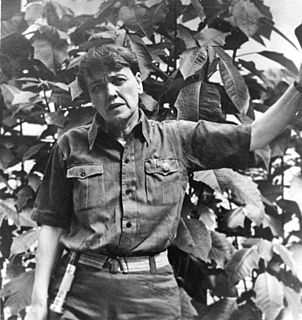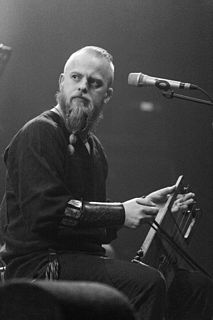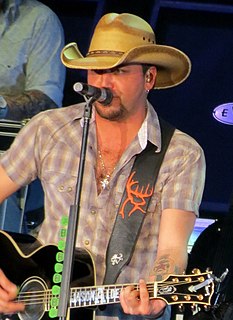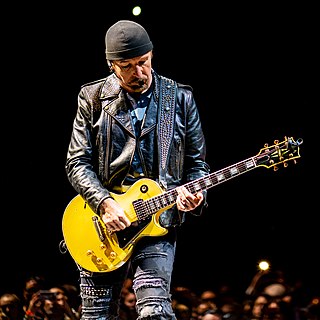A Quote by Agnes Smedley
But there were years when, in search of what I thought was better, nobler things I denied these, my people, and my family. I forgot the songs they sung - and most of those songs are now dead; I erased their dialect from my tongue; I was ashamed of them and their ways of life. But now - yes, I love them; they are a part of my blood; they, with all their virtues and their faults, played a great part in forming my way of looking at life.
Related Quotes
He was always part of her thoughts, and now that he was real, he was inescapably part of her life, but it was as she had told her mother: saying he was part of her or that they were more than friends sounded like love, but it seemed like loss as well. All the words she knew to describe what he was to her were from love stories and love songs, but those were not words anyone truly meant.
Throughout all of the changes that have happened in my life, one of the priorities I've had is to never change the way I write songs and the reasons I write songs. I write songs to help me understand life a little more. I write songs to get past things that cause me pain. And I write songs because sometimes life makes more sense to me when it's being sung in a chorus, and when I can write it in a verse.
In my culture we had songs for everything, and that's lost now. There were songs for when people were born, when they died, when they sowed the field, baked bread and they're gone now mostly. I think we need these songs today. One of the reasons people connect to Wardruna in such a personal way is because there is a need for these songs and for that kind of connection to the nameless. Call it nature, god whatever.
We call them impact songs, and people buy impact songs. But you just never know what those songs are going to be. One of those songs that really went through the roof for us was 'Big Green Tractor,' which I thought was kind of a fun little ditty song that I never in a million years thought would be as big as it was. But it was.
The beauty of Billie Holiday is that she gave every singer after her the license to interpret and perform music in ways that were unique to each of us. Her uniqueness was very much a part of the way she sang the songs, the story she wanted to tell through the songs. I didn't really have a full understanding of Billie until I left home -- until I'd lived a little, shall we say. At different seasons of my life, when I'd sing her songs or listen to her albums, I'd hear things I didn't hear before. Wherever you are in life, you'll hear different things in her songs.
I'm always interested in hearing how other people read and react to my songs. I hadn't thought of it in just that way. One of the things I love about doing things that are creative is that I feel like it's my right as an artist not to be affected by the reactions of those people that are going to hear my songs. But I also feel like it's the right of the people hearing them to have their own interpretations of what these songs mean. Sometimes people will see things that I don't see.
There are some really great books that have been written about slavery, but I don't think that the discourse about it in society has been very accurate or healthy. I don't think we've come up with ways to tell it that don't insult people or hit them in the wrong way. Part of the problem is that most people don't really understand what slavery was anyway. Most white people didn't own slaves. Slavery was a way of life, just like driving cars is a way of life now. It doesn't mean that it was right.
I hadn't played any music since freshman year of college, more than thirty years ago, so I had to relearn everything. I started writing songs. Some were dance and trance songs (I listen to them a lot while I'm writing), and some were love songs, because that after all is what music is about - dancing and trancing and love and love's setbacks.
And I thought about how many people have loved those songs. And how many people got through a lot of bad times because of those songs. And how many people enjoyed good times with those songs. And how much those songs really mean. I think it would be great to have written one of those songs. I bet if I wrote one of them, I would be very proud. I hope the people who wrote those songs are happy. I hope they feel it's enough. I really do because they've made me happy. And I'm only one person.
Later, she would remember these years, and realize with astonishment that she had, by fifteen, decided on most of the assumptions she would carry for the rest of her life: that people were essentially not evil, that perfection was death, that life was better than order and a little chaos good for the soul. Most important, this life was all. Unfortunately, she forgot these things, and had to remember them the hard way.
Starting a band is the easy part. Once you've formed the band, you have to tell a story, and that story requires songs. And not just good songs, but great songs. After a while, great songs won't do - they have to be the best. Success doesn't make it any easier. Each time I start a new record, it's a brand-new search.
Life with you was lovely—and when I say lovely, I mean doves and lilies, and velvet, and that soft pink ‘v’ in the middle and the way your tongue curved up to the long, lingering ‘l.’ Our life together was alliterative, and when I think of all the little things which will die, now that we cannot share them, I feel as if we were dead too.

































